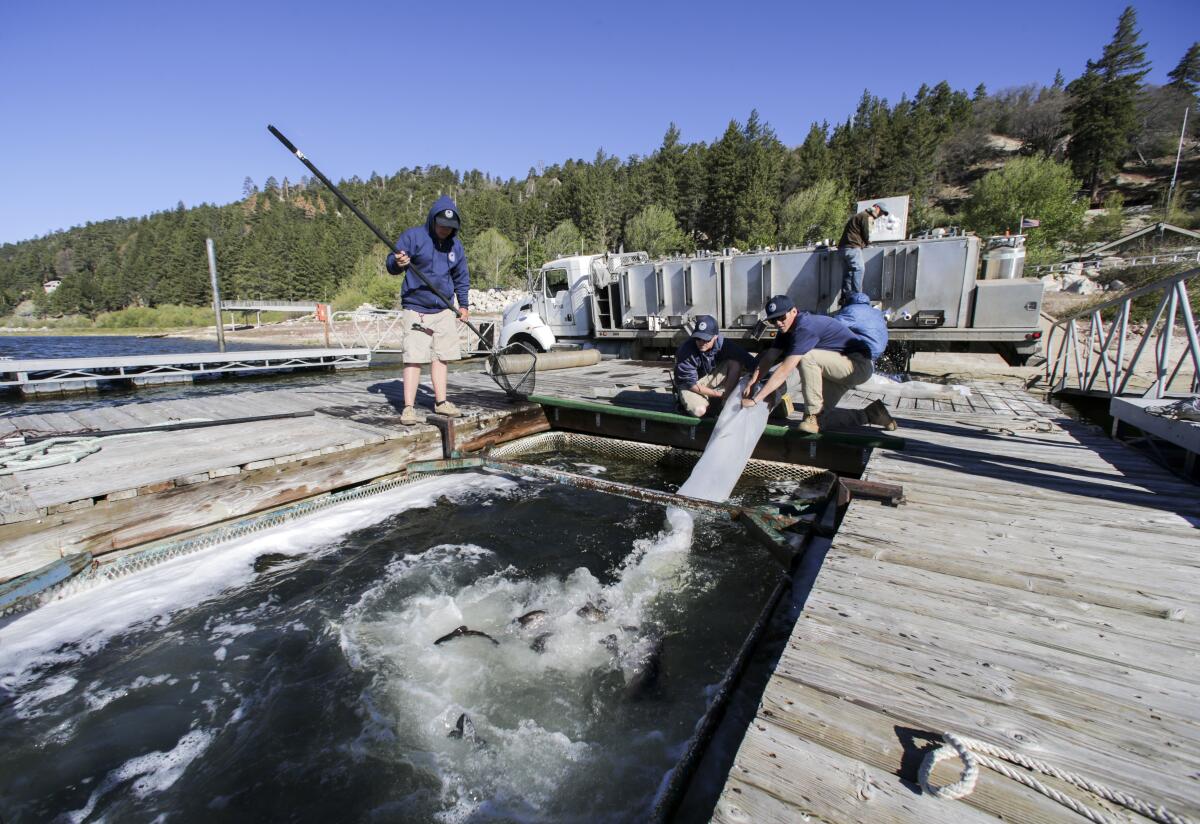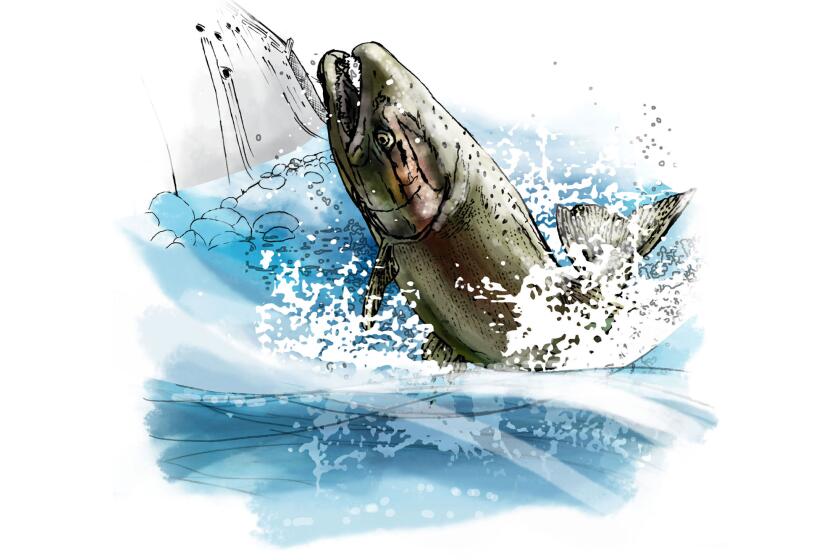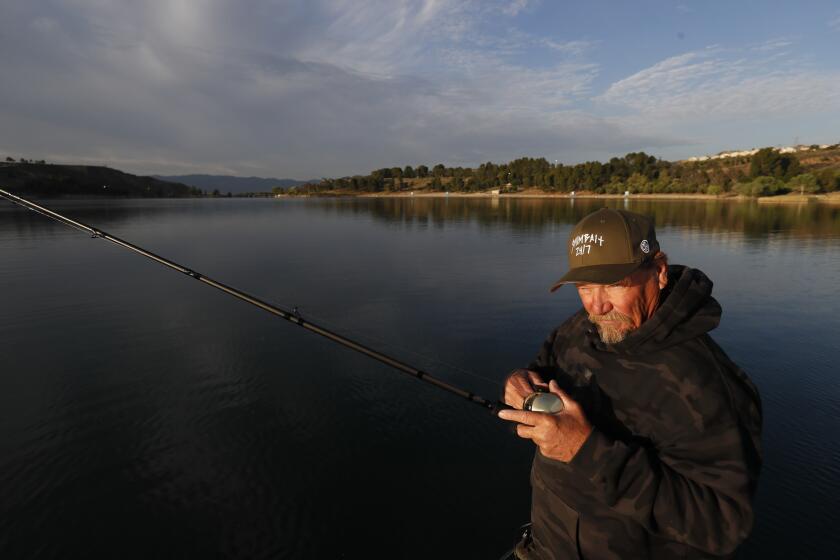California must euthanize 350,000 trout after bacteria outbreak. Recreational fishing could see impact

- Share via
A bacteria outbreak in two state hatcheries is forcing the California Department of Fish and Wildlife to euthanize about 350,000 rainbow trout, which could affect fishing stock in some state waterways this summer.
Two Fish and Wildlife hatcheries in the Eastern Sierra have been fighting an outbreak of a naturally occurring bacteria, Lactococcus petauri, since it was first detected in April, according to a news release from the agency. But this week, staff at the Black Rock and Fish Springs hatcheries determined that about 350,000 infected rainbow trout were showing signs of disease and must be euthanized.
The two facilities typically stock waterways for recreational fishing in Imperial, Inyo, Mono, Riverside and San Bernardino counties, so availability in those areas will potentially be affected. But Fish and Wildlife officials are working to contract with external vendors to ship in other stock to not substantially affect fishing opportunities, the statement said.
As dams and global warming push endangered California salmon to the brink, a rescue plan is taking shape — and a tribe pushes for recovering their sacred fish.
The statement said officials are hoping to approve this new contract in July to be able to add the additional stock to waterways soon after, as well as supplement with other state hatcheries.
“This loss is a huge disappointment, but we were prepared for this possibility and are doing all we can to ensure to continued angling opportunity for the public,” Russell Black, a fisheries supervisor with the Fish and Wildlife, said in a statement. “The fish from the private contractor and stocks from non-infected hatchery facilities will help bridge the gap while we work to vaccinate the remaining stocks at the affected facilities.”
The agency is planning to utilize two different types of fish vaccines, developed by UC Davis, at the affected hatcheries.
Butch Brown has caught and released well over 1,500 largemouth bass weighing more than 10 pounds. One morning at Castaic Lake, he shares some of his secrets for catching monster fish.
The state agency said that fish-to-human transmission of the bacteria that sickened the rainbow trout is “rare and unlikely” but reminded people to always cook any caught fish to an internal temperature of 145 degrees.
This bacteria, Lactococcus petauri, is usually spread by movement of fish or eggs, the statement said. Fish pathologists with Fish and Wildlife believe that it may have been carried into the hatcheries by birds that picked it up from an unknown source in the environment.
More to Read
Sign up for Essential California
The most important California stories and recommendations in your inbox every morning.
You may occasionally receive promotional content from the Los Angeles Times.













